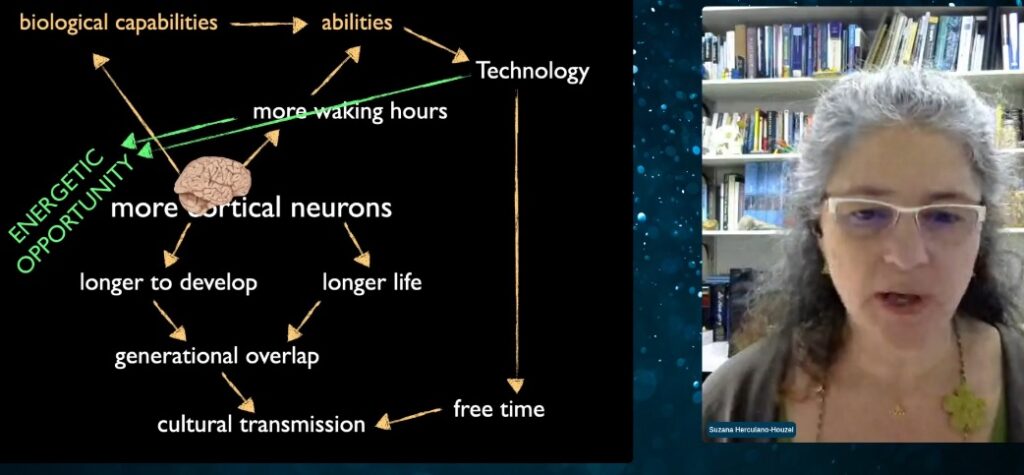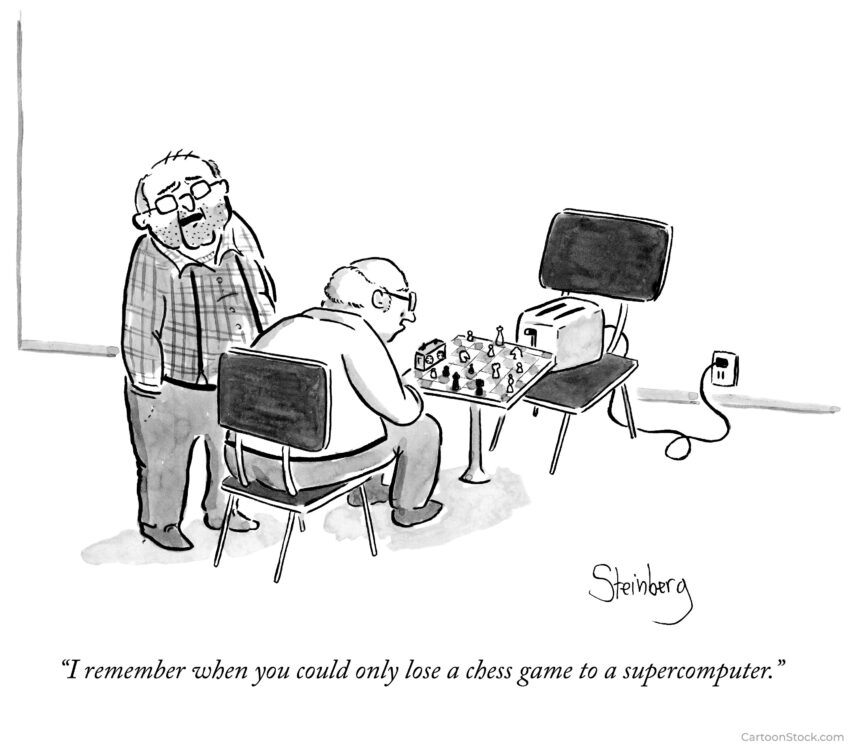This day might not be the best day to ask how humans became so smart. Americans, in particular, seem to be going in the opposite direction, regressing into a bottomless pit of ignorance and idiocy. However, the human race, as a whole, has become the intellectual masters of Earth. Other animals and even plants have “intelligence” but it is undeniable that humans are, for better or worse, “smarter.”
How did humans become so bright? There are many explanations, many of which are secondary factors. Among the reasons are a larger brain, the evolution of the “social brain,” opposable thumbs, good eyesight, language, cooperation, overlapping rearing of children, and more highly developed brain structures. These factors make sense but do not fully explain why humans are smarter. Our advantage is derived from something else. It is like asking why some people are richer than others. One response would be “because they have more money.” Sure, they have more money, but how did they accumulate wealth?
Brain development might be a “chicken or egg” puzzle, but there are a few causal explanations. Underlying one train of thought is the random evolutionary event or set of random events. As in a scene from the movie 2001: A Space Odyssey, an answer could be that one of our distant ancestors was sitting around with a femur bone of an animal and a cosmic ray hit the correct set of chromosomes, which suddenly made future humans “smarter.” Following a similar evolutionary rationale, the same ancestor accidently used the femur as a weapon or tool, which initiated a chain of events that made humans smarter.
These are all explanations, but after reading and listening to Suzana Herculano-Houzel, I found a more compelling set of explanations. Her book, The Human Advantage: How our Brains became Remarkable (MIT Press, 2016), is based on her years of work as an evolutionary neuroscientist. For years, Suzana studied the brains of all sorts of animals, including birds, reptiles, octopuses, elephants, fish, and many others.
Her studies found that humans do not have the largest brains. Elephants and sperm whales have much larger brains. However, in comparing body size to brain size, she found that humans were unique among all animals. The expected size (a function of body size and brain size) of human brains is three times larger than that of other primates and seven times larger than that of non-primates. She found other significant differences, such as the density of neurons and the brain’s architecture. [Please ignore the following sentence if you are squeamish.] She used a food blender and a microscope to study and count the neurons of the various brains. If you are interested in more details, please read her book.
I was more interested in her explanations for the evolution of the brain. She does not contradict other explanations but presents evidence and reinforces previous theories about cooking as a key factor in human brain development. The advent of new cutting, bashing, mincing, pureeing, seasoning, marinating, and tenderizing techniques helped humans digest their food faster and more efficiently. They moved beyond simply gathering food and became hunters. They learned to hunt together, like a wolf pack. Additionally, they improved their culinary skills by learning to heat their food to modify macromolecules.
The significant advantages of cooking are that we spend less time collecting food, our body spends much less energy processing food, and our food is of higher quality. All other animals spend more time and energy finding and digesting food. Additionally, their bodies are evolutionarily designed around the logistics of food processing. Ruminants (e.g., cattle, sheep, deer, giraffes, etc.) have complicated four-chambered stomachs. They spend a lot of time collecting and processing their low-energy food.
Cooking was one of the human race’s springboards to many biological improvements. More efficient food processing led to more complex brain development and more cortical neurons. As our brains became unnaturally larger, humans had more time to live, think, invent, and pass on what they learned to future generations.
This is a screenshot from a webinar given by Dr. Herculano-Houzel last week.

Evolutionary biology has favored homo sapiens over the millennia. Of course, our species’ intelligence does not guarantee success or wisdom. We can intelligently believe nonsense or use our intelligence to destroy ourselves. However, we can succeed and create a prosperous Earth using our brains intelligently and cooperatively. But we should not forget our ancestral culinary skills. Without those skills, we might be stumbling around the savannah, hunting nuts and berries.

